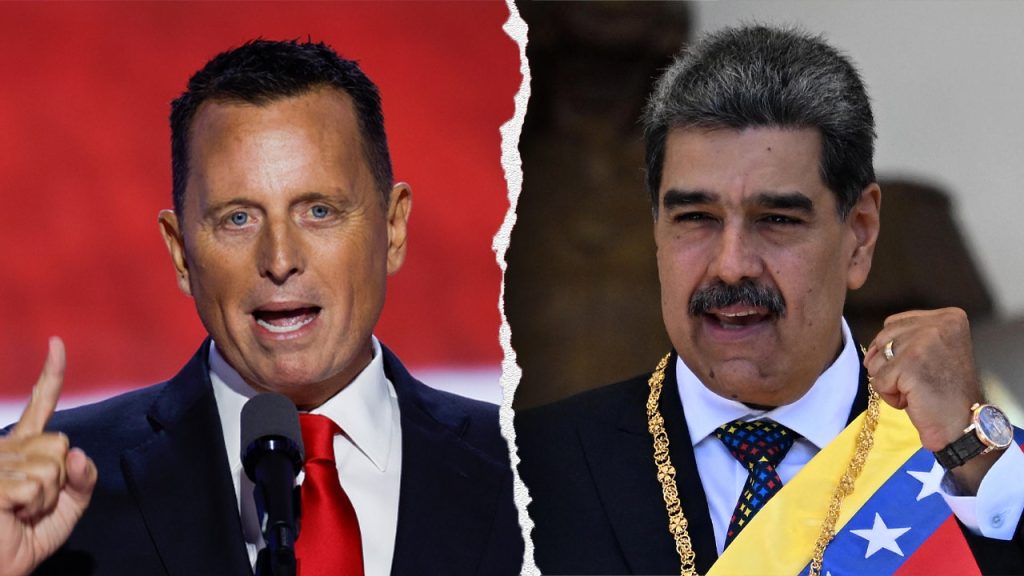Richard Grenell, acting as a special envoy for President Donald Trump, embarked on a mission to Venezuela to convey a direct message to Nicolás Maduro regarding the repatriation of Venezuelan criminals and the release of American hostages. The core of Grenell’s message centered on two non-negotiable demands: the unconditional acceptance of deported Venezuelan criminals, including members of the notorious Tren de Aragua gang, and the immediate release of all American hostages held within Venezuela. This mission, as emphasized by the U.S. special envoy to Latin America, Mauricio Claver-Carone, was not framed as a quid pro quo or a negotiation, but rather as a clear articulation of U.S. expectations. The Trump administration maintained a firm stance, refusing to recognize Maduro’s legitimacy as president following the disputed 2024 Venezuelan election.
The timing of Grenell’s mission coincided with heightened political tension in Venezuela. Maduro had recently been sworn in for a third term despite widespread allegations of electoral fraud and international condemnation. The opposition, led by Edmundo González Urrutia, claimed victory and, with the support of figures like María Corina Machado, urged citizens to protest against the Maduro regime. This volatile political climate underscored the urgency of Grenell’s mission and the precarious situation faced by American detainees.
The plight of American hostages in Venezuela remained a significant concern for the U.S. government. While the exact number of detained Americans was uncertain, estimates ranged as high as ten individuals. The Venezuelan government, under Maduro, accused some of these detainees of involvement in destabilization plots, a claim vehemently denied by the U.S. State Department. The ambiguity surrounding the detainees’ status and the Venezuelan government’s accusations created a complex backdrop for Grenell’s mission. The demand for their unconditional release represented a firm stance against what the U.S. perceived as unjust detention.
The history of U.S.-Venezuela relations, particularly during the Trump administration, was marked by strained diplomatic ties and mutual mistrust. The U.S. had consistently refused to recognize Maduro’s legitimacy, imposing sanctions and supporting the Venezuelan opposition. This tense relationship added another layer of complexity to Grenell’s mission. His direct interaction with Maduro, despite the lack of formal diplomatic recognition, signaled a pragmatic approach to resolving the pressing issues of criminal repatriation and hostage release.
The issue of Venezuelan criminal deportations further complicated the already strained bilateral relationship. The U.S. asserted that Venezuela had an obligation to accept its deported citizens, particularly those involved in criminal activities, including members of the dangerous Tren de Aragua gang. This demand resonated with concerns about rising crime rates and the potential for destabilization linked to transnational criminal organizations. Maduro’s willingness, or lack thereof, to cooperate on this issue would serve as a crucial test of his willingness to engage with the U.S., even on a limited basis.
The Grenell mission to Venezuela underscored the complex and multifaceted challenges facing U.S. foreign policy in the region. The demand for the unconditional release of American hostages, coupled with the insistence on the repatriation of Venezuelan criminals, highlighted the U.S. government’s priorities: protecting its citizens abroad and addressing transnational crime. The mission took place against a backdrop of political instability in Venezuela, further emphasizing the delicate nature of the situation and the potential for further escalation. The outcome of Grenell’s direct interaction with Maduro would significantly impact the future trajectory of U.S.-Venezuela relations, potentially opening a channel for further dialogue or reinforcing the existing stalemate. Ultimately, the success of the mission hinged on Maduro’s response and his willingness to engage with the U.S. on these critical issues.

